Mark Lawrence Schrad - Vodka Politics: Alcohol, Autocracy, and the Secret History of the Russian State
Here you can read online Mark Lawrence Schrad - Vodka Politics: Alcohol, Autocracy, and the Secret History of the Russian State full text of the book (entire story) in english for free. Download pdf and epub, get meaning, cover and reviews about this ebook. year: 2014, publisher: Oxford University Press, genre: Politics. Description of the work, (preface) as well as reviews are available. Best literature library LitArk.com created for fans of good reading and offers a wide selection of genres:
Romance novel
Science fiction
Adventure
Detective
Science
History
Home and family
Prose
Art
Politics
Computer
Non-fiction
Religion
Business
Children
Humor
Choose a favorite category and find really read worthwhile books. Enjoy immersion in the world of imagination, feel the emotions of the characters or learn something new for yourself, make an fascinating discovery.
- Book:Vodka Politics: Alcohol, Autocracy, and the Secret History of the Russian State
- Author:
- Publisher:Oxford University Press
- Genre:
- Year:2014
- Rating:3 / 5
- Favourites:Add to favourites
- Your mark:
- 60
- 1
- 2
- 3
- 4
- 5
Vodka Politics: Alcohol, Autocracy, and the Secret History of the Russian State: summary, description and annotation
We offer to read an annotation, description, summary or preface (depends on what the author of the book "Vodka Politics: Alcohol, Autocracy, and the Secret History of the Russian State" wrote himself). If you haven't found the necessary information about the book — write in the comments, we will try to find it.
Vodka Politics: Alcohol, Autocracy, and the Secret History of the Russian State — read online for free the complete book (whole text) full work
Below is the text of the book, divided by pages. System saving the place of the last page read, allows you to conveniently read the book "Vodka Politics: Alcohol, Autocracy, and the Secret History of the Russian State" online for free, without having to search again every time where you left off. Put a bookmark, and you can go to the page where you finished reading at any time.
Font size:
Interval:
Bookmark:
Alcohol, Autocracy, and the Secret History of the Russian State
MARK LAWRENCE SCHRAD


Oxford University Press is a department of the University of Oxford.
It furthers the Universitys objective of excellence in research, scholarship, and education by publishing worldwide.
Oxford New York
Auckland Cape Town Dar es Salaam Hong Kong Karachi
Kuala Lumpur Madrid Melbourne Mexico City Nairobi
New Delhi Shanghai Taipei Toronto
With offices in
Argentina Austria Brazil Chile Czech Republic France Greece
Guatemala Hungary Italy Japan Poland Portugal Singapore
South Korea Switzerland Thailand Turkey Ukraine Vietnam
Oxford is a registered trademark of Oxford University Press in the UK and certain other countries.
Published in the United States of America by
Oxford University Press
198 Madison Avenue, New York, NY 10016
Oxford University Press 2014
All rights reserved. No part of this publication may be reproduced, stored in a retrieval system, or transmitted, in any form or by any means, without the prior permission in writing of Oxford University Press, or as expressly permitted by law, by license, or under terms agreed with the appropriate reproduction rights organization. Inquiries concerning reproduction outside the scope of the above should be sent to the Rights Department, Oxford University Press, at the address above.
You must not circulate this work in any other form and you must impose this same condition on any acquirer.
CIP record is available from the Library of Congress
ISBN 9780199755592
1 3 5 7 9 8 6 4 2
Printed in the United States of America
on acid-free paper
For my wife, Jennifer.
I have so many words to express so many things, but none could hope to describe my love and appreciation for who you are and all you do.
In this book, Russian names generally follow the British standard (BGN/PCGN) transliteration, with some alterations to accommodate the widely accepted English equivalents of familiar historical figures (for example, Tsar Nicholas and Tsarina Catherine, rather than Tsar Nikolai and Tsaritsa Ekaterina). To aid pronunciation, I have opted to change the Russian ii ending to a y, and eliminate the Russian soft sign from personal and place names (so Maksim Gorkii becomes Maxim Gorky). These alterations do not apply to the bibliographic references in the notes, which maintain the standard transliteration for those who wish to consult the original sources.
A book about Russia based on vodka? Hows that going to sit with Russian readers? Well, when a New York Times article I wrote related to the subject found its way onto the Russian-language blogosphere, it certainly didnt take me long to find out: Vodka? Hey, while youre at it, dont forget the bears and balalaikas came one understandable rejoinder, drenched in the requisite sarcasm about gullible foreigners and their misguided perceptions about Russia. Dozens more jibes and sneers quickly followed.
To be sure, confronting well-worn clichs is an uncomfortable business. Especially when unflattering broadsides are made against an entire nation, they prompt a response from both those outside and inside the group such stereotypes purport to describe. For insiders, the usual response to a hurtful platitude is to downplay or deny it. Sympathetic outsiders normally try to politely ignore it. Rarely do offended parties embrace a perceived insult, and rarer still does anyone stop to investigate and explore it.
Obviously, in studying Russiaits people, culture, politics, and historywe encounter just such a widely held and uncomfortable stereotype in the form of the hopelessly drunken Russian. People who can barely locate Russia on a map readily associate it with insobriety, while foreigners studying the Russian language surely know how to say vodka well before they even learn to say hello.
Yet that image is not exclusive to foreigners: as the new millennium dawned, the All-Russian Center for the Study of Public Opinion (VTsIOM) asked actual Russian citizens what they considered the main symbol of twentieth-century Russia: vodka beat out not just bears and balalaikas, but also nesting dolls and even AK-47s for the top spot. Still, while everyone knows alcohol is a major social problem, vodkas roots run so deep in Russian history and culture that simply acknowledgingmuch less unpacking and confrontingthis endemic challenge seems somehow impolite, especially for an outsider.
Yet while virtually every developed country on earth put their so-called liquor question to bed a century ago, alcohol continues to bedevil high politics in Russia. For instance, in late 2011 and 2012, an unprecedented wave of popular opposition in Moscow nearly thwarted Vladimir Putins return to a third term as Russias president following four years as prime minister alongside his protg Dmitry Medvedev. In his last major speech to the Dumathe lower house of Russias parliamentbefore his re-inauguration, Putin highlighted Russias precarious health and demographic situation as one of his administrations most pressing political challenges. Without any wars or calamities, Putin said, smoking, alcohol, and drug abuse [alone] claim 500,000 lives of our countrymen every year. This is simply a horrific figure. Unless Putin suffers from amnesia, these indeed-horrific figures should not have come as any surprise: he repeatedly lamented vodkas ghastly toll during both his first and second administrations (20002008) in almost the same language.
Since Putin emerged on the political scene in 1999, Russian social indicators have unquestionably improved upon the unimaginable social devastation and economic demodernization in the years immediately following communisms collapse in 1991. The economy grew at some seven percent per year for an entire decade from 1998 to 2008 before getting hammered by the global financial crisis. Yet while the macroeconomic indicators were on the rebound, figures on Russian life expectancy more closely resembled sub-Saharan Africa than postindustrial Europe. Even today, the average teenage Russian boy has a worse chance of living to age sixty-five than do boys in failed states like Somalia and Ethiopia.
Russias tragic cultural weakness for vodka is often chalked up to the torments of the Russian soul. But simply assuming that intoxication and self-destruction are somehow inherent cultural traitsunalienable parts of what it is to be Russian, almost down to the genetic levelis akin to blaming the victim. There is nothing natural about Russias vodka disaster.
As I argue here, Russian societys longstanding attachment to the vodka bottleand the misfortune that follows in its wakeis instead a political disaster generated by the modern, autocratic Russian state. Before the rise of the modern Russian autocracy, the people of medieval Rus drank beers and ales naturally fermented from grains, plus meads naturally fermented from honey, and kvas naturally fermented from bread. If they were well-to-do, they imported wines fermented from grapes and berries. They not only drank beverages similar to those elsewhere on the European continent; they also imbibed similar amounts and in a similar manner. That all changed with the introduction of the very unnatural process of distillation, which created spirits and vodkas of a potencyand profitabilitythat nature simply could not match. Beginning in the sixteenth century, the grand princes and tsars of Muscovy monopolized the lucrative vodka trade, quickly promoting it as the primary means of extracting money and resources from their lowly subjects.
Font size:
Interval:
Bookmark:
Similar books «Vodka Politics: Alcohol, Autocracy, and the Secret History of the Russian State»
Look at similar books to Vodka Politics: Alcohol, Autocracy, and the Secret History of the Russian State. We have selected literature similar in name and meaning in the hope of providing readers with more options to find new, interesting, not yet read works.
Discussion, reviews of the book Vodka Politics: Alcohol, Autocracy, and the Secret History of the Russian State and just readers' own opinions. Leave your comments, write what you think about the work, its meaning or the main characters. Specify what exactly you liked and what you didn't like, and why you think so.

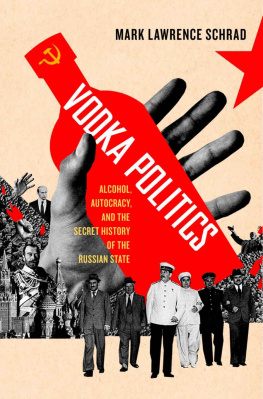
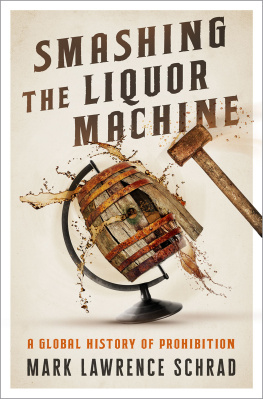



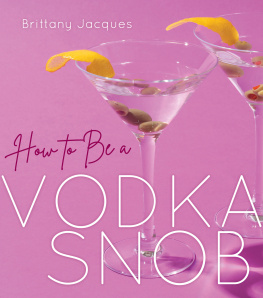
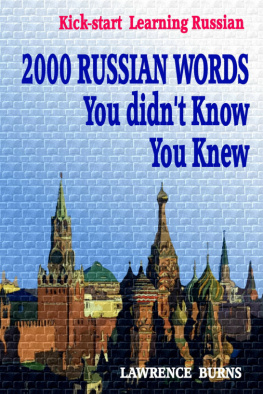

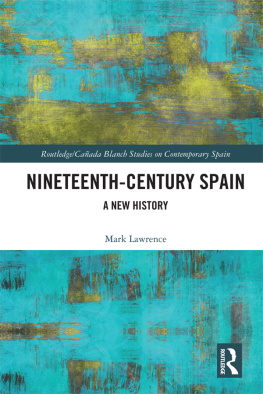
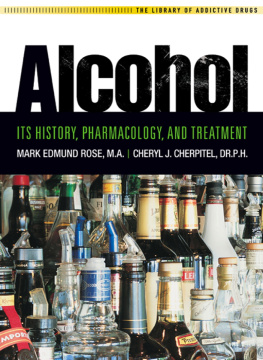
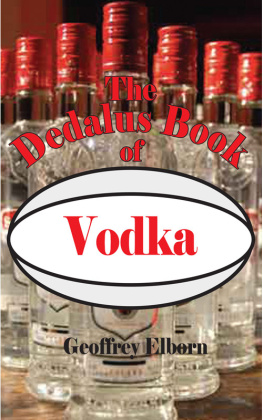
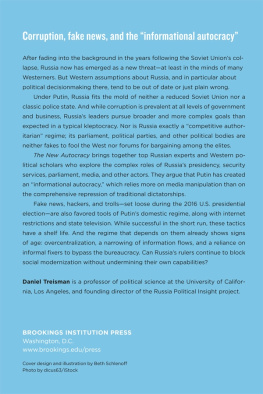
![Scott C (Christopher) Martin - The Sage Encyclopedia of Alcohol Social, Cultural, and Historical Perspectives. 1 [A - D]](/uploads/posts/book/102244/thumbs/scott-c-christopher-martin-the-sage.jpg)